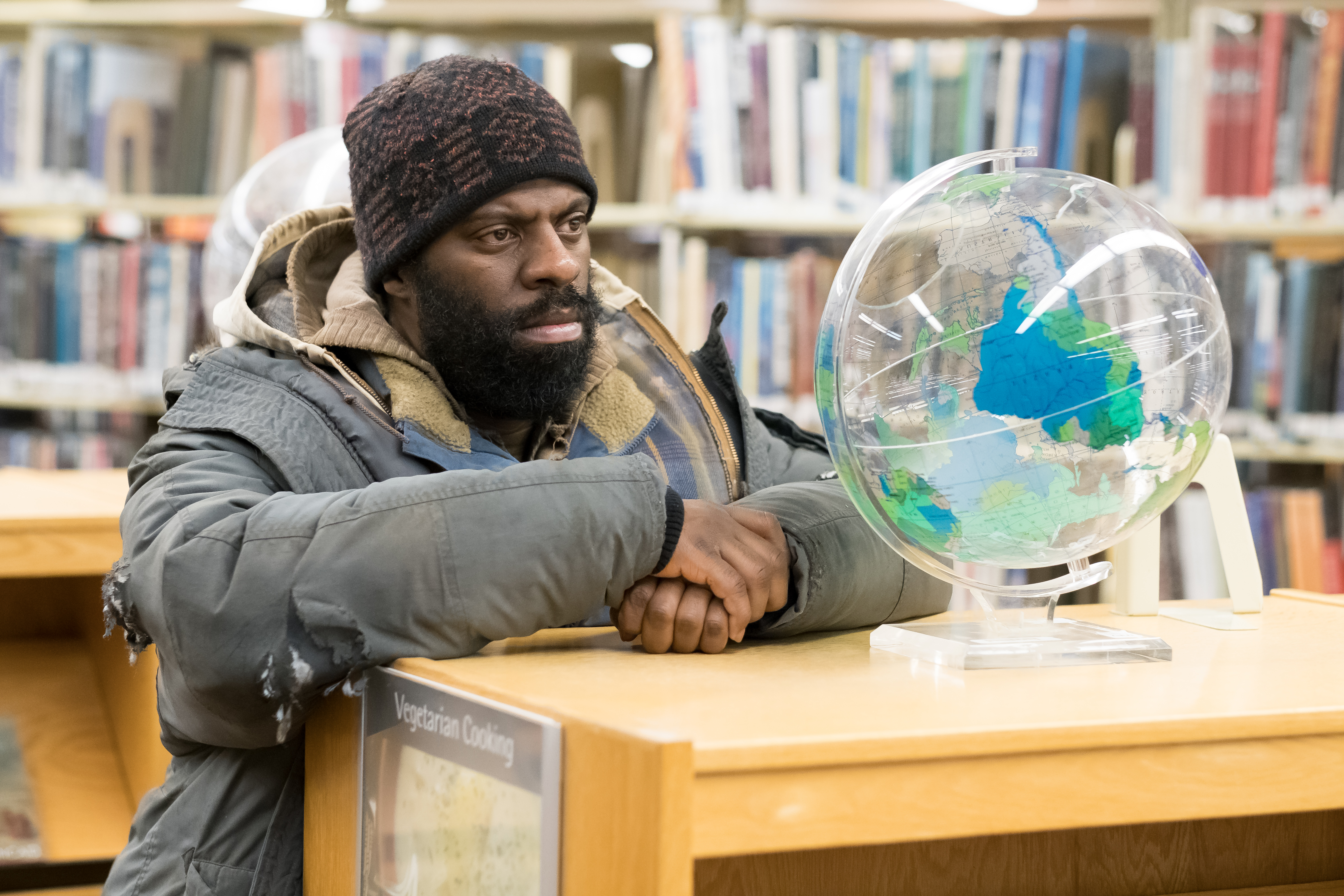Emilio Estevez’s New Film Centers Around Homelessness
By Meha Ahmad

Emilio Estevez’s New Film Centers Around Homelessness
By Meha AhmadEmilio Estevez rose to fame in the ’80s as a member of the “Brat Pack,” and continued to bring audiences to the movies as the coach in the Mighty Ducks franchise. But Estevez has also been a director for many years.
His latest film, The Public, takes a look at the homeless crisis and premieres April 5.
Morning Shift talks about the new film with Estevez and hip-hop artist and Chicago activist Che “Rhymefest” Smith, who stars in the film.
Why was it so important to make this film?
Emilio Estevez: It began as an article in the L.A. Times. It was written by a retiring Salt Lake City librarian named Chip Ward (in 2007). And the thesis of the essay was libraries have become de facto homeless shelters and that librarians have become first responders and de facto social workers. And that it wasn’t just isolated to Salt Lake City, that this was something happening across the country.
Jenn White: Why do you think it took so long to make the film?
Estevez: Well you go around trying to pitch a movie like this and you say, ‘Well, it’s a movie that takes place in a library, deals with homelessness issues, deals with mental illness issues — it doesn’t necessarily push the Blockbuster button. It took a while to pull together all the funding, and that’s proven to be the easiest part of the process of making the film. It’s then getting it out to the public and getting it distributed.
We’re creating a bit of a movement. People are embracing the film. People are the unsung and the outcast and the misfits that are portrayed in this movie (and) are seeing themselves on screen and saying, ‘OK, that’s us and we’re feeling empowered.’

Che ‘Rhymefest’ Smith’s personal connection to the film
Che “Rhymefest” Smith: My father was homeless for about 35 years. I never knew my father, and we did a documentary where I went looking and finally found my father. The first place he wanted to meet me was at the library, and that’s because that’s where he could have dignity in meeting his son.
And we did a documentary called In My Father’s House that somehow got to Emilio’s mom and Emilio’s mom, Janet, contacted him and said, ‘You know, I saw this incredible story that kind of fits with what you’re doing and you should contact that guy.’ And so, Emilio Facebooked me, and that’s how I got into this film.
Estevez: Something about the way she framed it — that this is important and this gentleman could be a very special edition to your cast — forced me to take a real hard look and reach out to Che and started the conversation.
‘The Public’ humanizes the homeless population
Estevez: It was definitely intentional to humanize and to give dignity and a face and a name to those experiencing homelessness. I think what takes people off guard is the humor in this film. I don’t think people go into this expecting to be entertained, and they are … many of the stories that you hear from people who are experiencing homelessness are heartbreaking, yes, but also some of them are also very, very funny and very self-effacing.
Advice for librarians serving homeless patrons
Ryan Dowd: A lot of it boils down to don’t treat your homeless patrons any differently than you would your other patrons. Because, unfortunately, a lot of people — out of fear more than anything — feel like they have to really come in tough with homeless patrons in a way the you wouldn’t with other patrons, and it just doesn’t work.
This interview has been edited for brevity and clarity by Stephanie Kim. Click the “play” button to hear the entire conversation.
GUESTS: Emilio Estevez, actor, writer, director and of The Public
Che “Rhymefest” Smith, Chicago native and hip-hop artist
Ryan Dowd, author and executive director of Hesed House in Aurora
LEARN MORE: Emilio Estevez’s new movie about homelessness ‘got us right’ says Hesed House audience (Chicago Tribune 3/19/19)
